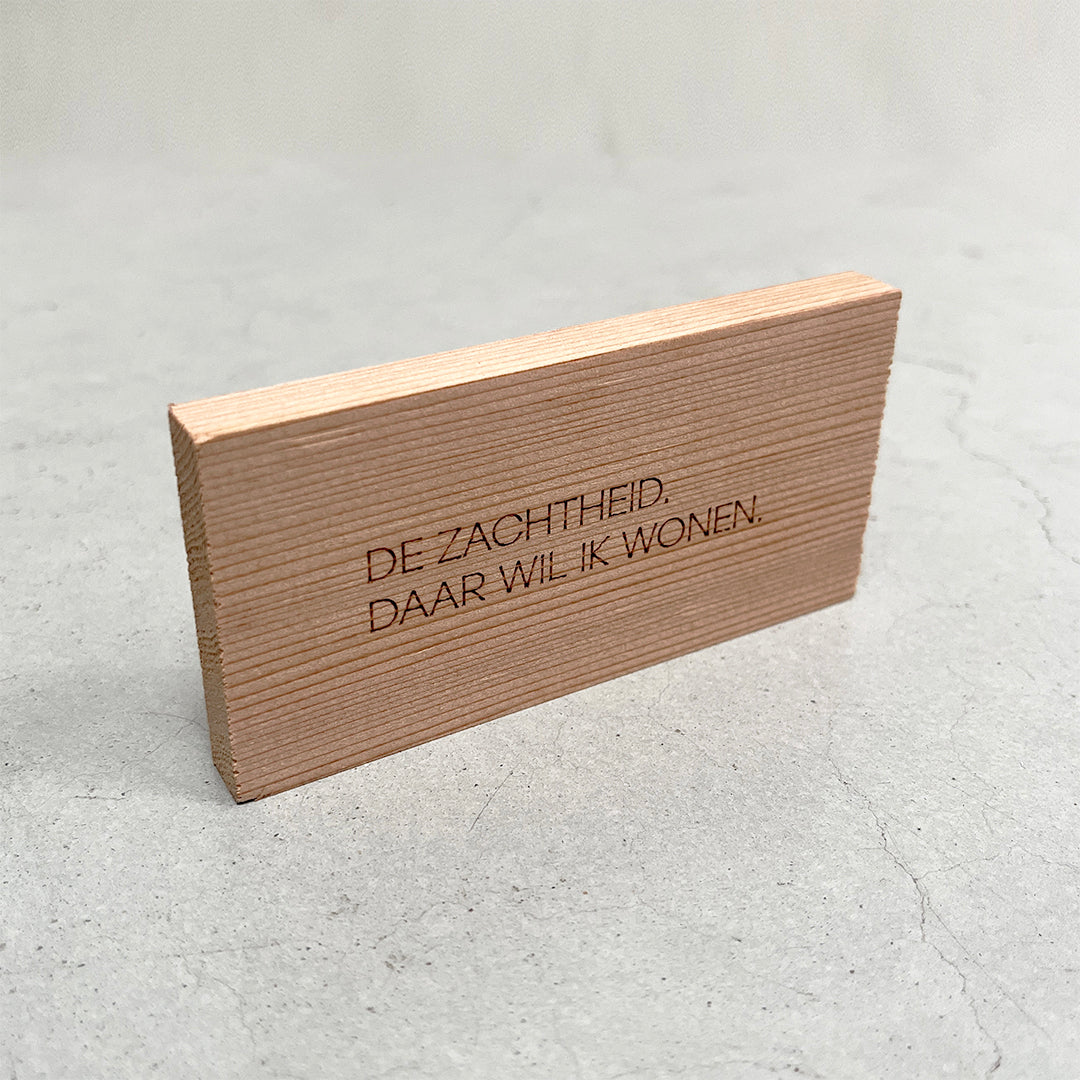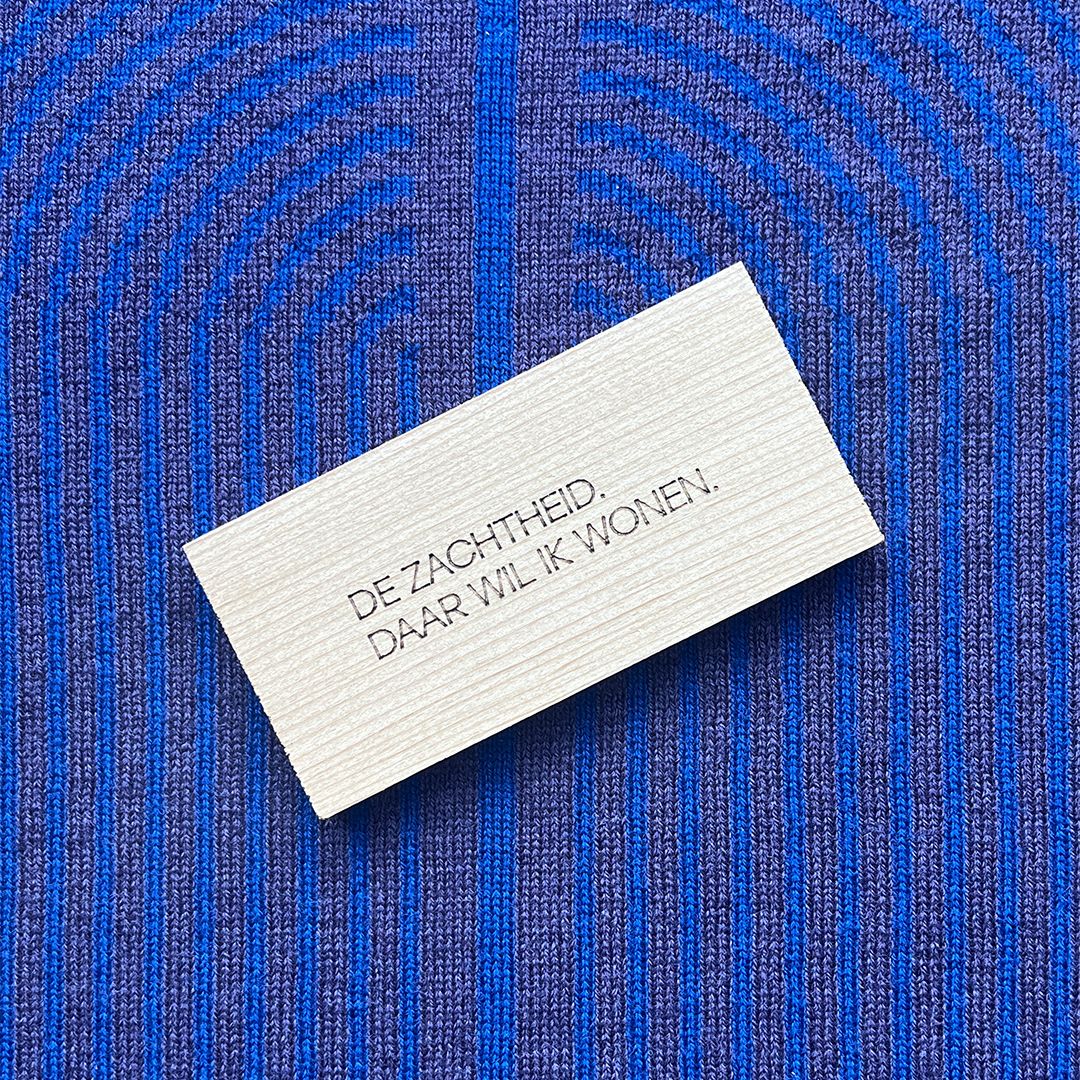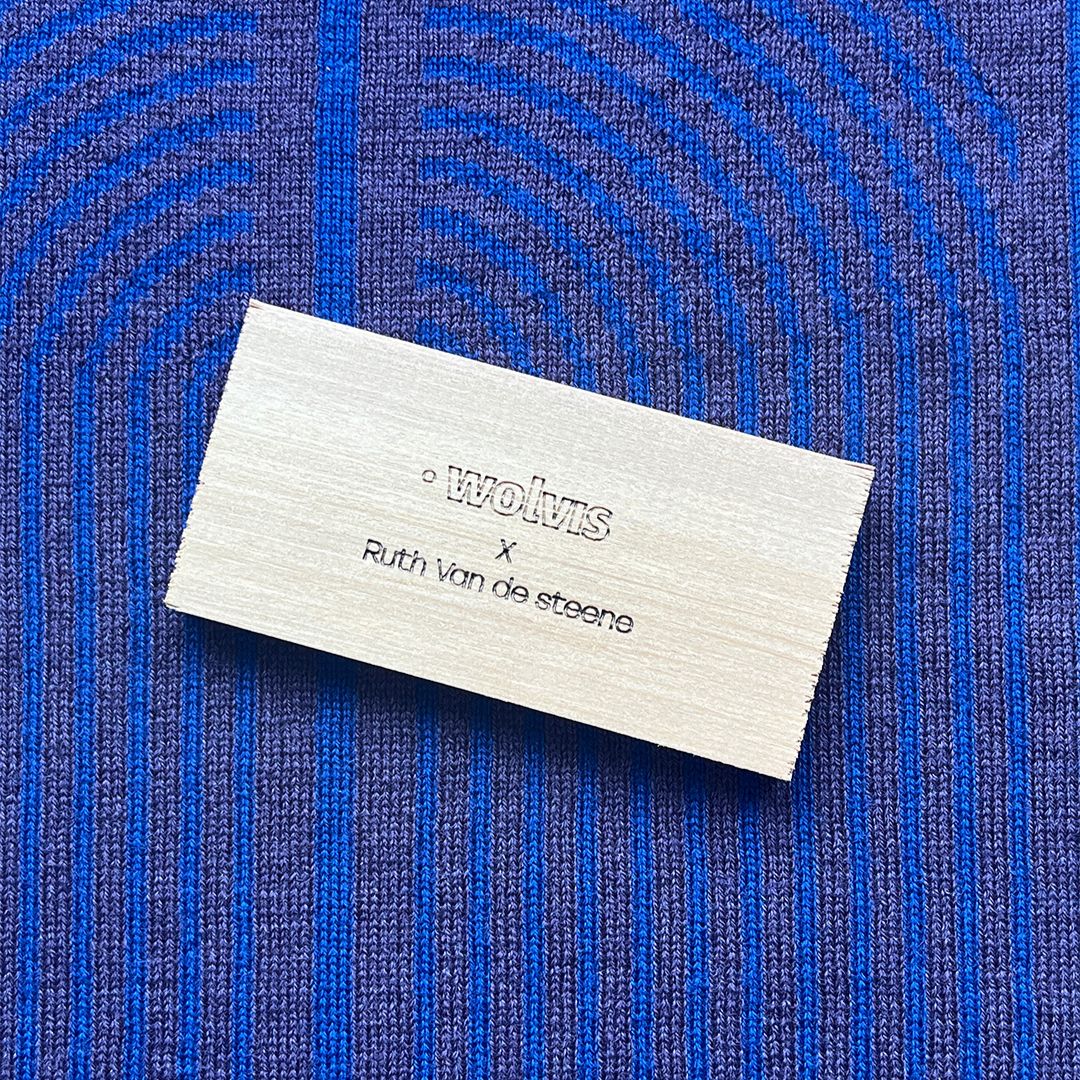Impact guide
• wolvis’ mission is to create exquisite knitwear pieces: tangible narratives that inspire, touch the heart, and foster genuine connections. We take our responsibility for developing innovative products seriously, always keeping our impact on the environment in mind.
Transparency is key: we openly share our small steps, aspirations for the future, as well as the challenges we face and areas where improvement is needed. We unveil this commitment in relation to the choice of fibers, design, production, retail, consumption, and end of life.

Raw material
Our primary resource is the exquisite yarn with which we knit and weave. The market offers a myriad of yarn options. To make well-considered decisions, we set guidelines for ourselves – an order of priority that enables us to make swifter and more targeted choices.
Yarn Color Selection
In our quest for new yarns, color choice becomes the decisive factor. • wolvis makes no compromises when it comes to color. Not all yarn suppliers offer a stock range, as it is called: yarns available in specific colors, varying from season to season, and always in stock. For • wolvis, such a stock range is essential, as our productions are too small to order colors 'on demand.' Therefore, we are compelled to collaborate with yarn suppliers who maintain an extensive stock range.
Natural Fibers
Furthermore, we aspire to work predominantly with natural fibers, such as merino wool or cotton. The The Bauhaus Series winter collection '24 is primarily crafted from 100% extra-fine merino wool.
Merino wool fibers are extremely fine. A human hair measures approximately 70 microns (μm) in thickness, while that of a merino sheep ranges from only 14.5 to 24.5 μm. A micron is one millionth of a metre: the finer the micron, the softer the fibre. The merino yarn used in The Bauhaus series is one the finest of all: 19.5 μm. This means that the yarn is exceptionally soft, incredibly lightweight and non-irritating. A yarn thickness of 19.5 μm is commonly used for baby clothing or thermal underwear - garments designed to be worn close to the skin. A perfect choice for a • wolvis piece!
Monomaterial
We prefer to work with 100% merino wool or 100% cotton, mainly because it makes recycling a garment much easier. However, in certain cases, we may make a concession to extend the quality and/or lifespan of a piece. Nevertheless, we have set a minimum threshold of 50% natural fibers for an end product.
In the wrist cuffs of mittens and gloves for instance, elastane is added to provide stretchability and shape retention, ensuring a snug fit around the wrist. Similarly, in socks, polyamide is added to increase durability in the heels and toes.
Certified Yarns
We aim to embrace yarns with quality labels, yet encounter a few challenges along the way. Yarns with certifications often come with higher price tags, though this does not necessarily guarantee superior quality. Moreover, a variety of certificates is flooding the market and the process of obtaining them has turned into a somewhat ambiguous practice, often entailing significant expenses. As a result, the task of discerning the most suitable choices has become increasingly challenging.
Nevertheless, we keep our eyes on the evolving legislation in this domain and sense that changes are underway. Our ultimate goal is to achieve full transparency across the entire supply chain: from grazing sheep to the soft merino wool scarf wrapped around your neck.
Printing & Packaging Materials
For printing and packaging materials, we adhere to the following fundamental principles:
• All shipping boxes are made from certified (FSC) and preferably recycled materials. Shipping boxes for retail purposes primarily consist of reused boxes from our own (yarn) deliveries.
• All printed materials are produced on certified (FSC) and 100% recycled paper, limited to a minimum.
• All other accompanying promotional materials or gift packaging are recyclable.
Design
Throughout the design process, we keep in mind three fundamental principles:
1
Our designs are timeless and not tied to passing trends
2
Our designs have an intrinsic quality and can be cherished season after season
3
We strive to minimize production waste
In our quest to reduce cutting waste and elevate the quality of our products, we have decided to seek a new production partner specializing in 3D knitting.
Production
We maintain 100% of our production within Europe, with 90% in Belgium and 10% in the Czech Republic.
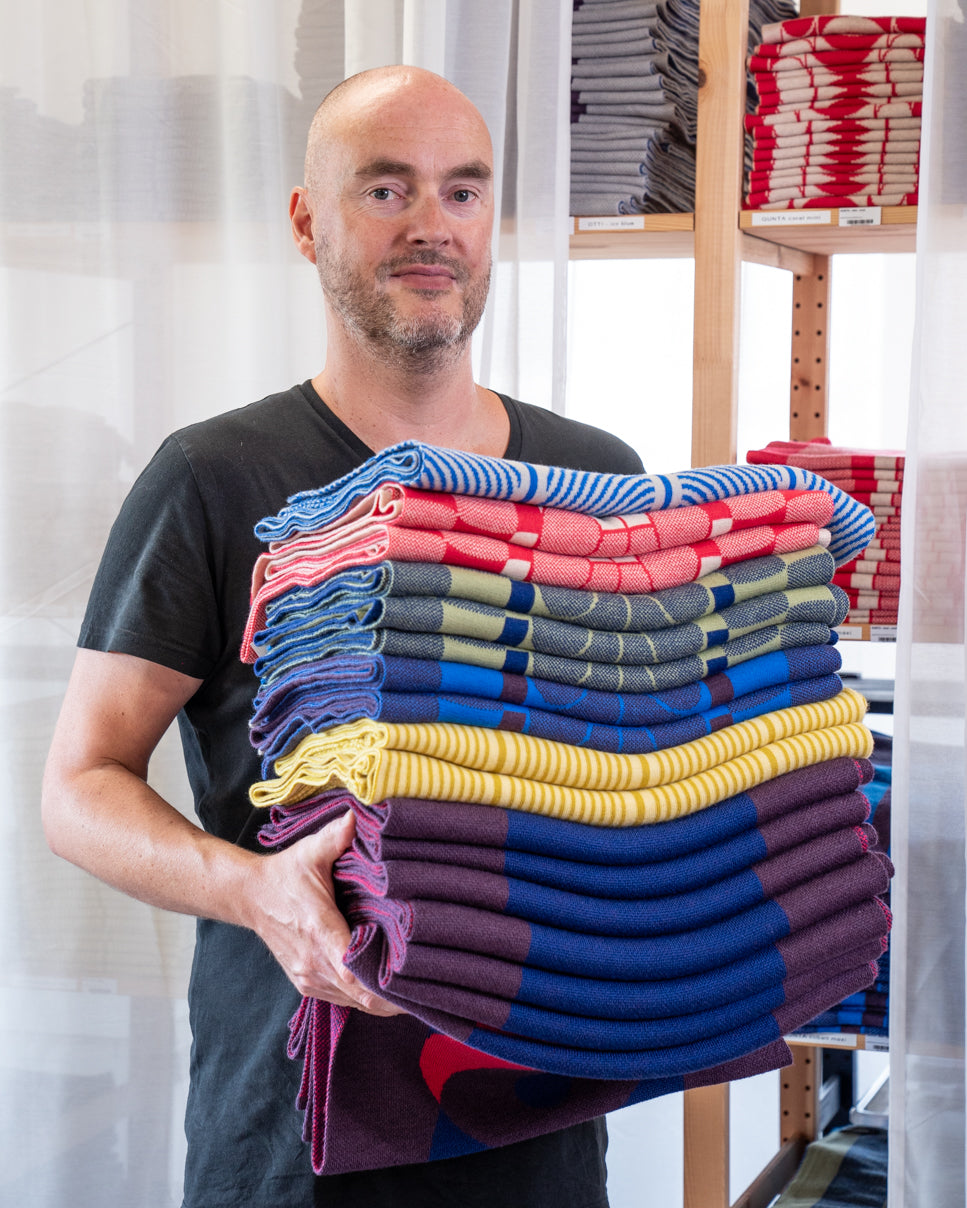
100% Europe
90% Belgium
10% Czech Republic
All our scarves and garments are skillfully knitted in Belgium. However, beanies, socks gloves and mittens are crafted using specialized machines, which, unfortunately, have become rare in Belgian knitting ateliers. We discovered a new partner in the Czech Republic that aligns perfectly with our production standards and values.
To ensure good synergies with our production partners, they embrace our "Code of Conduct" (currently in development), an ethical and legal framework that outlines our production standards and values. This commitment ensures that we share the same principles with our esteemed partners.
In conversation with
our knitwear
manufacturer
In our journal you can read the interview with Alex. We engage in conversations with our production partners because we believe it is essential for our customers to know the artisans behind their wolvis pieces. Each of our partners boasts a rich family history in the industry, making their stories all the more captivating.
Alex in the knitwear factory in Waregem, Belgium
© Bieke DepoorterMagnum Photos
• wolvis production locations: Merino wool: Australia, South Africa,New Zealand and South America Spinning mill: Borgosesia, Italy Dyehouse: Borgosesia, Italy Production scarves & gilets: Waregem, Belgium Production socks: Oudenaarde, Belgium Production gloves, mittens & beanies: Borová u Policky, Czech Republic
Retail
This Impact Guide aims to inform • wolvis retailers, who, in turn, can educate their customers. By summer ‘25 customers will be able to trace its production journey.
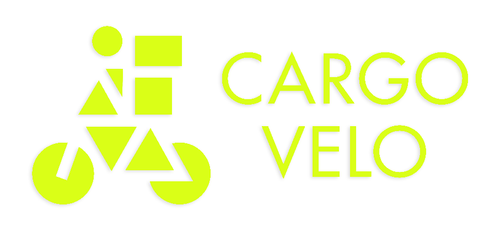
Sustainable shipping
In 2023, we started a partnership with Cargovélo. On the • wolvis webshop, customers have the option to choose between local pickup, standard shipping via Bpost or Cargovélo, the sustainable alternative, for a nominal extra charge.
Coming soon: by summer '25, we aspire to attach a QR code to each product, allowing customers to trace its production journey. Our ultimate goal is to make as many links in this chain visible, with the ultimate aim of ending at the grazing sheep.
Consumption
The entire • wolvis range is available for rent on the Dressr rental platform, ensuring that customers with a smaller wardrobe or budget can delight in a wolvis piece season after season.

Our mission is to encourage every • wolvis item to be cherished, passed on, and cherished further. We aim to assist in the impeccable maintenance of your piece. With every online purchase, customers receive a document detailing the care instructions for their purchase. Additionally, the website offers maintenance guidelines for various materials.
Presently, customers can return items with minor damages or little holes for repair. For a modest fee (depending on the size of the hole), we mend the pieces by hand. As our hands are already full with other endeavors, we are in search of a partner to alleviate some of this labor-intensive work.
This autumn, we will launch repair tutorials and written instructions, enabling skilled customers to handle minor repairs themselves.
End of life
Since autumn ‘23, we have started to explore possibilities for upcycling a • wolvis. We hope that through these experiments, several upcycling projects will emerge, inspiring our customers to create something new from a discarded (for example, shrunken) wolvis piece.
As there is currently no separate waste collection or sorting system for 100% wool in Belgium, we are creating our own answer to this.
Unwearable and irreparable scarves can be returned to us, and we will ensure they find their way into the appropriate waste stream.

